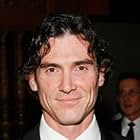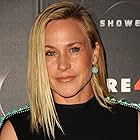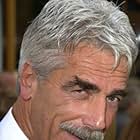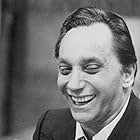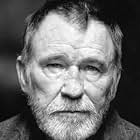IMDb RATING
6.1/10
4.6K
YOUR RATING
Two cowboys have their friendship tested when they fall for the same girl.Two cowboys have their friendship tested when they fall for the same girl.Two cowboys have their friendship tested when they fall for the same girl.
- Awards
- 4 wins & 4 nominations total
Darren E. Burrows
- Billy Harte
- (as Darren Burrows)
- Director
- Writers
- All cast & crew
- Production, box office & more at IMDbPro
Storyline
Did you know
- TriviaDirector Sam Peckinpah tried to get this movie produced for years, but unfortunately he died before he had the chance.
- GoofsA Coke vending machine is clearly labeled ten cents. In this part of the country in the late 1940s it would have been five cents. Around 1960 vending machines went to six cents, quite a novelty at the time, requiring two coins to get a Coke. It was later in the 1960s when vending machines finally went to ten cents.
- Quotes
Pete Calder: I once set out to kill a man. I took pleasure in the thought of his death.
- SoundtracksQue Chulos Ojos
Written by Francisco Cantu
Performed by Hermanas Ayala
Published by San Antonio Music Publishers, Inc.
Featured review
The point of this exercise escapes me. Today, in 1999, there are probably two valid reasons for reviving a relic of a genre - to provide an old-fashioned, nostalgic, action-packed adventure, or to remould the Western in our age's image, to try to see what the form can say about us, our ideologies, and, most importantly, our relation to history. This film does neither.
On the one hand, it has many of the virtues of the traditional Western - lovingly bleached landscapes; a pompous, overwrought score; cattle runs; male bonding. But it has neither a compelling narrative drive, charismatic characters, nor a mythic sensibility.
On the deconstructive side, it seems to want to critique the problematic values of the West. The maverick rebel versus corporate muscle is, as has been pointed out, a theme worthy of Peckinpah, but its treatment lacks his romantic passion, violent sympathy, or dynamic self-pity.
The hero, Big Boy, is, according to some, a subject of the film's censure, but the only fault I can find in him is that he is probably impotent, and if that's supposed to be an iconoclastic weakness, than the filmmakers are being rather macho. So he's a bit wild and brutal; he's also loyal, dignified and amusing, and Woody Harrelson invests him with much charm. The rest of the characters, especially Pete, with his wretched narration(there are never voiceovers in Westerns!), are dull and unreal.
Jim Kitses has called the film a melodrama, and to an extent this is true - this is no quest narrative; there is no building a white US culture, no battle between the primitive and civilisation as one finds in the Fordian western. Much of the action focuses on the domestic. A recurring motif is barbed wire, suggesting that the characters are as corralled as the animals they steer, in a prison whose walls actively hurt.
The film is also faintly unusual in having a woman in a pivotal role, although Patricia Arquette is, as usual, quite appaling. However, without me revealing it, the coda betrays all this, reverts twofold to the old 'Print the legend' pack of lies, and still holds out faith in the 'Go west, young man' myth, exactly as they did in the old days.
Stephen Frears has been praised for adapting to the mores of the Western, but this is surely untrue. Photographing desert landscapes, however beautifully, does not make you a great Western filmmaker. You must have a critical apparatus, whether its through the use of montage, like Peckinpah, or though music and composition, like Leone. As a revisionist, Frears has actually regressed from these masters. There is very little of his stamp at all, none of the genre knowledge he showed in The Grifters, one of the great films of the 90s.
He is best at revealing claustrophobic and deceitful sexual tensions and power games between small groups of (often related) people. There are some excellent examples of this here, especially when the four lovers gather after the barroom brawl; there are also a few good scenes, and gorgeous silhouettes: but mostly the thing flounders in its own insecurity and reverence.
On the one hand, it has many of the virtues of the traditional Western - lovingly bleached landscapes; a pompous, overwrought score; cattle runs; male bonding. But it has neither a compelling narrative drive, charismatic characters, nor a mythic sensibility.
On the deconstructive side, it seems to want to critique the problematic values of the West. The maverick rebel versus corporate muscle is, as has been pointed out, a theme worthy of Peckinpah, but its treatment lacks his romantic passion, violent sympathy, or dynamic self-pity.
The hero, Big Boy, is, according to some, a subject of the film's censure, but the only fault I can find in him is that he is probably impotent, and if that's supposed to be an iconoclastic weakness, than the filmmakers are being rather macho. So he's a bit wild and brutal; he's also loyal, dignified and amusing, and Woody Harrelson invests him with much charm. The rest of the characters, especially Pete, with his wretched narration(there are never voiceovers in Westerns!), are dull and unreal.
Jim Kitses has called the film a melodrama, and to an extent this is true - this is no quest narrative; there is no building a white US culture, no battle between the primitive and civilisation as one finds in the Fordian western. Much of the action focuses on the domestic. A recurring motif is barbed wire, suggesting that the characters are as corralled as the animals they steer, in a prison whose walls actively hurt.
The film is also faintly unusual in having a woman in a pivotal role, although Patricia Arquette is, as usual, quite appaling. However, without me revealing it, the coda betrays all this, reverts twofold to the old 'Print the legend' pack of lies, and still holds out faith in the 'Go west, young man' myth, exactly as they did in the old days.
Stephen Frears has been praised for adapting to the mores of the Western, but this is surely untrue. Photographing desert landscapes, however beautifully, does not make you a great Western filmmaker. You must have a critical apparatus, whether its through the use of montage, like Peckinpah, or though music and composition, like Leone. As a revisionist, Frears has actually regressed from these masters. There is very little of his stamp at all, none of the genre knowledge he showed in The Grifters, one of the great films of the 90s.
He is best at revealing claustrophobic and deceitful sexual tensions and power games between small groups of (often related) people. There are some excellent examples of this here, especially when the four lovers gather after the barroom brawl; there are also a few good scenes, and gorgeous silhouettes: but mostly the thing flounders in its own insecurity and reverence.
- alice liddell
- Aug 8, 1999
- Permalink
- How long is The Hi-Lo Country?Powered by Alexa
Details
- Release date
- Countries of origin
- Official site
- Language
- Also known as
- İhtiras tomurcukları
- Filming locations
- Production companies
- See more company credits at IMDbPro
Box office
- Gross US & Canada
- $166,082
- Opening weekend US & Canada
- $17,712
- Jan 3, 1999
- Gross worldwide
- $166,082
- Runtime1 hour 54 minutes
- Sound mix
- Aspect ratio
- 2.35 : 1
Contribute to this page
Suggest an edit or add missing content













